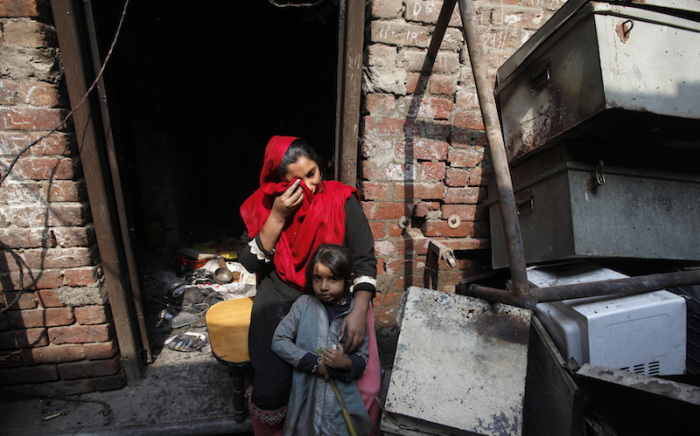Pakistan Acquits All 115 Suspects in Burning of Christians' Homes

A court in Pakistan on Saturday cited lack of evidence to acquit all 115 suspects in the burning of more than 150 houses of Christians in 2013 over alleged blasphemy of the Prophet Muhammad.
Chaudhry Muhammad Azam, Lahore's anti-terrorism court judge, said the prosecutors failed to produce sufficient evidence against the accused, who had been charged under various laws, including the Anti-Terrorism Act, attempted murder, robbery, arson and terrorism, according to The Indian Express.
A prosecution lawyer, however, disputed the judge's conclusion and was quoted as saying, "This incident not only spread a wave of terrorism in Lahore but also brought a bad to name to Pakistan."
The March 8, 2013, attack was seen as the largest anti-Christian violence since the attacks in 2009 that killed nine Christians in the town of Gojra in the same province of Punjab.
Police arrested the accused two days after a mob of about 3,000 Muslims armed with sticks, clubs and stones burned at least 150 houses of Christians, a church and shops in the Joseph Colony area in Lahore over allegations that a Christian had made derogatory remarks about the Prophet Muhammad.
After the incident, a Supreme Court bench, headed by Chief Justice Iftikhar Chaudhry, reprimanded the government of Punjab and the province's police for failing to protect members of the minority community. Justice Azmat Saeed Sheikh, a member of the bench, said the violence took place "right under the nose of Punjab Police and there was total inaction."
The court also said at the time that police at the "highest level" may have been told not to take action when the violence erupted.
The accused in the blasphemy case, identified as 26-year-old Sawan Masih, and the complainant, his Muslim friend identified as Imran Shahid, had quarreled under the influence of liquor, but the latter claimed it was a case of insulting the Prophet Muhammad.
"Both Imran and Sawan are close friends and the former has made the allegation only to settle a personal score because they had quarreled over some petty matter," a local resident, Dilawar Masih, who lost his house and shop in the attack, was quoted as saying at the time. He added that the attackers burned their houses even after the accused had been arrested.
Blasphemy is punishable by life in prison or even death in Pakistan.
The blasphemy law, embedded in Sections 295 and 298 of the Pakistan Penal Code, is frequently misused to target religious minorities – Christians, Shi'as, Ahmadiyyas and Hindus – and allows Islamists and others to justify killings. Extremist Islamists believe that killing a "blasphemous" person earns a heavenly reward.
Just an accusation under the controversial law is enough to have a person arrested, and there is no provision to punish a false accuser or a false witness of blasphemy. Some local Muslims seek revenge by making an allegation against his or her adversary who is a non-Muslim. Many who are accused of blasphemy are also often killed by mobs extra-judicially.





























